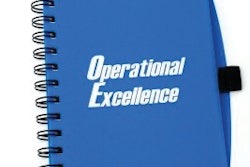
You may not know this but I've spent a quite a bit of time inside corporate America. It has provided some great insights that we've successfully applied to construction businesses.
There is one area that corporate American is obsessed with yet contractors are almost oblivious to: continuous improvement.
Continuous improvement originated with an American named Edwards Deming who took it to Japan shortly after WWII and taught Japanese manufacturers how to become the world's best
by continually improving their design and manufacturing processes. In the early 1980s American car companies started adopting Deming's methods to fix their severe quality problems.
American cars were falling apart within 100,000 miles and Japanese cars were running well past 200,000. GE and Motorola jumped on the bandwagon shortly thereafter. Eventually continuous process improvement spread to all corners of American manufacturing and large service companies.
I strongly urge you to adopt it for your construction business as it is the only approach that is going to produce long-term competitive advantage. Allow me to get you started down that
path.
In order to drive continuous improvement through your business you need to adopt a certain mindset: everything you do in your business is a process. One of the great benefits of a process mindset is that it keeps you from over-reacting to a poor outcome. The classic example in construction is pricing.
Contractors constantly chase their tails trying to figure out what a job will go for. They will move the price of their next bid up and down depending on where they ended up on the last
bid. That type of pricing is the exact opposite of being systematic. That approach is reactionary. Adopting a process mindset pretty much stops reactionary decision making. I personally feel reactionary decision making is the most common mistake contractors make.
The reason you want to pursue continuous improvement mindset is that it leads to a business that can almost run itself. Isn't that a large part of what you're striving for? Don't you
want to own a business that you can take a break from now and then without worrying about your income?
I often hear contractors mention wanting to systematize their business. Guy and I preach that message also. We use the term systematize for common understanding. What we really mean is contractors need to systematize their processes. Only by systematizing a process can you improve it in a controlled and predictable manner.
To improve a process the first thing you need to do is standardize it. Without a standardized process you will not have the ability to reliably improve it. Without standardized process you are at the mercy of how each employee chooses to perform the task. Without a standardized process you will be apt to blame the employee for poor outcomes when in reality it might have been due to a lack of training or unclear communication.
Here is a list the major processes you need to standardize and start improving:
- Lead generation
- Business development
- Marketing
- Job costing
- Estimating
- Pricing (yes it's a separate system)
- Scheduling
- Interviewing
- Performance Management
- Budgeting
- Material ordering
- Equipment deployment
- Labor deployment
- Project documentation
- Change order processing and pricing
- Compensation & bonuses
- Strategic Planning
- Time reporting
There are more but you get the picture. You have a lot of processes to standardize and document. Why do they need to be documented? History teaches us that when processes are
mapped and visible there is clarity on how the process should work.
Getting your processes documented isn't that difficult to do, although it can be time consuming. Take the list above and figure out who does the process best and have that employee write down the steps he or she follows. If you are going to standardize you might as well start with the best practice right?
Once you chosen a standard for the process let everyone who performs that process know that you expect them to follow the process until a better approach is found. Challenge them to find a better approach. Finding a better approach is continuous improvement.
Continuous improvement has its own process. It is called the Plan-Do-Check-Act Cycle (PDCA).
- Plan a process change.
- Make the change (Do)
- Check the impact the change has on process quality and reliability
- Decide whether to keep the change or reject it (Act)
- Keep working through PDCA cycles until your team is convinced that the process cannot be improved.
The better your company gets at continuous improvement the greater the competitive advantage you'll have. You will almost certainly have a cost advantage. Your competitive advantage will juice your bottom line and present you with opportunities for growth. Growth means adding staff.
Having your processes standardized, documented and honed accelerates the impact new employees have on your business. It reduces risk of new employees making painfully poor decisions. It creates confidence among your team in your business' future and therefore their future career opportunities with your business.
Not everything will be a bed of roses. Some people cannot stand following someone else's procedure. These are people who typically embrace individual initiative and creative thinking. Foremen and superintendents often have this personality. You will need to enforce your processes with such people. You can't let them deviate from proven best practices just because they want to do things the way they want to do them.
Always pursue continuous improvement. The status quo never wins in the long run.




















